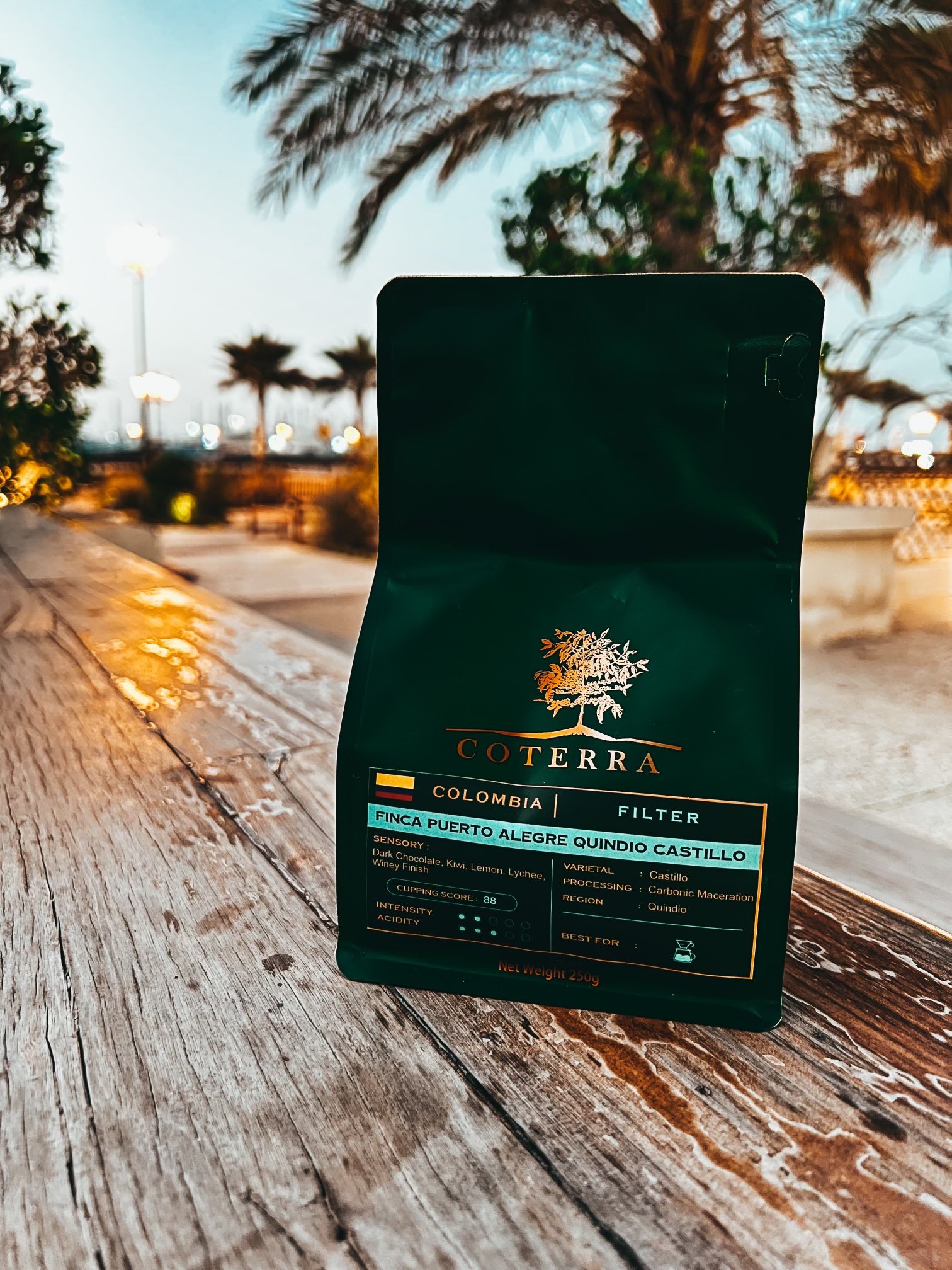What I’m Brewing: Colombia Quindio by Coterra Coffee Roasters
Photo Credit: Abdullah Jalees
Origin: Colombia
Region: Quindio
Farm: Finca Puerto Alegre
Farmer: Lopez family
Process: Carbonic Maceration
Altitude: 1,450 masl
Varietal: Castillo
Notes: Dark Chocolate, Kiwi, Lemon, Lychee, Winey Finish
Cup Score: 88
In my last post, I wrote about my experiences at Coterra Coffee Roasters, and as I write this blog, I realize I left an important point that Dipesh spoke about - Accessibility of specialty coffee for the consumers - new and enthusiasts alike.
If you feel that, much of the specialty coffee prices today are way beyond our reach, you are not alone, especially if it is an experimental process. If superlatives are used, then it often comes with the price tag to match.
What this does is leave out a larger chunk of an audience who, 1) cannot afford the coffee, 2) hesitant to try it out in the first place because they are clueless and overwhelmed as to what these labels actually mean.
His vision for the consumer is to enjoy a variety of origins with different processing, making them open to the idea of trying something new, and also understand how the origins differ to each other.
Image Credit: Sucafina Specialty
Coming back to the coffee, I’m currently brewing this wonderful Colombia Finca Puerto Allegra Quindio Castillo, this has undergone the carbonic maceration process. The Coterra team were very excited about this coffee, and rightfully so, because you will definitely want a second serving.
You always read about cherry being picked when it is in its peak ripeness, identified by its color closely associating a dark blood red. On this farm, however, a refractometer is used to selectively pick cherries.
The brix content, which is the total amount of sugar, in the cherries are then measured to make sure they are within the acceptable range and only then, they are placed in sealed bags to be fermented.
This is a temperature controlled process and the release of carbon dioxide is monitored. This takes about two to four days to complete. The fermented cherries are placed on raised beds in parabolic driers, using the sun and air to dry the coffee, for the next 25 to 30 days.
I am sharing this bag with a friend, Abdullah Jalees, and his liking for experimental processed coffee is well known amongst his peers. The most prominent notes are lychee, lemon and the familiar sweet winey finish. Abdullah shares his brewing recipe below:
Coffee: 20g
Water: 300g
Temperature: 92 Degrees C
Ratio: 1:15
Total Brew Time: 2 minutes 15 seconds
Pour 60 ml of water for the bloom stage and wait for 30 seconds. Then pour 140 ml of water and aim to finish pouring in one minute. Pour the remaining 100 ml of water until 1:30 seconds.






